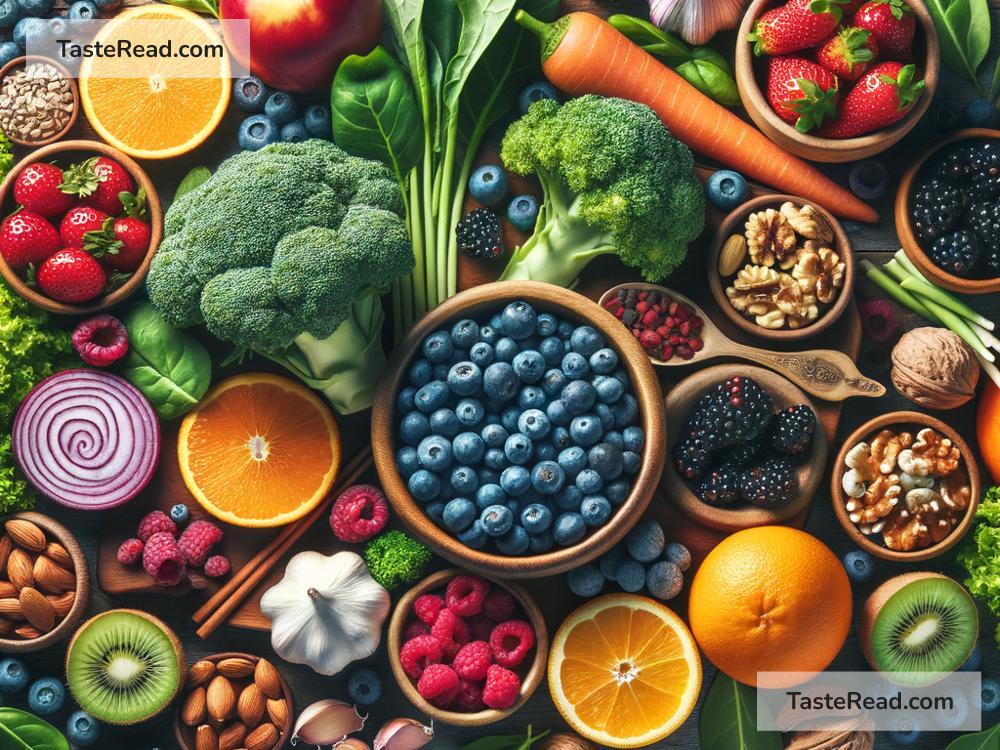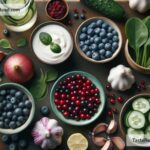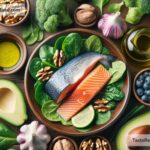Foods That Reduce the Risk of Varicose Veins
Varicose veins are those twisted, enlarged veins that often appear on the legs. They happen when the valves in your veins stop working properly, causing blood to pool instead of flowing smoothly back to your heart. While they’re not usually dangerous, varicose veins can lead to discomfort, swelling, or even serious complications if left untreated.
Many factors contribute to the development of varicose veins, including genetics, standing or sitting for long periods, pregnancy, and lifestyle choices. While there’s no magic cure, eating the right foods can help improve your vein health and reduce your risk of developing varicose veins. Let’s explore how your diet can play a role in healthier veins and the top foods to include.
Why Your Diet Matters for Vein Health
Your veins transport blood throughout your entire body. For your veins to function well, they need to be strong, elastic, and free from blockages. The health of your veins is directly connected to your overall circulation. A poor diet can lead to inflammation, weak vein walls, and blood pooling, which together increase your risk of varicose veins.
Eating foods that promote good circulation, reduce inflammation, and strengthen vein walls can help keep your veins healthy. This also makes it easier for your blood to flow smoothly without unnecessary pressure on your veins.
Top Foods That Reduce the Risk of Varicose Veins
Here are some nutrient-packed foods that support vein health and lower your chances of developing varicose veins:
1. Leafy Greens
Spinach, kale, arugula, and other leafy greens are rich in nutrients like magnesium and vitamin K. These nutrients help regulate blood pressure and improve circulation. Magnesium also prevents blood from pooling and reduces cramping in the legs, making it easier for veins to do their job.
Add leafy greens to salads, smoothies, or sautéed dishes for a vein-friendly boost.
2. Berries
Berries like blueberries, strawberries, and raspberries are full of powerful antioxidants. These antioxidants, especially flavonoids, improve circulation, protect vein walls from damage, and reduce inflammation in the body. Regularly eating berries helps prevent the breakdown of collagen in vein tissues, promoting elasticity and strength.
Snack on fresh berries, mix them into yogurt, or blend them into smoothies for a tasty way to support vein health.
3. Citrus Fruits
Oranges, grapefruits, lemons, and limes are packed with vitamin C. This nutrient is essential for producing collagen and elastin, which keep veins strong and flexible. Vitamin C also helps improve circulation and fights inflammation, two key factors in preventing varicose veins.
Start your day with a citrus-infused drink or enjoy freshly peeled oranges as a healthy snack.
4. Garlic
Garlic is known for its ability to improve circulation and reduce inflammation. It contains allicin, a compound that helps prevent blood vessels from becoming blocked. Garlic also supports vein health by lowering blood pressure and improving blood flow, which reduces the strain on your veins.
Add garlic to soups, stir-fries, or roasted vegetables for both flavor and health benefits.
5. Avocados
Avocados are rich in healthy fats, vitamin E, and potassium. Vitamin E is an antioxidant that helps keep veins strong and elastic, while potassium reduces water retention and improves circulation. Together, these nutrients support vein health and minimize the chance of inflammation.
Spread avocado on toast, blend it into smoothies, or use it as a topping for salads and bowls.
6. Whole Grains
Whole grains like oats, quinoa, and brown rice are high in fiber. Fiber supports digestion and prevents constipation, which can put pressure on vein walls and contribute to varicose veins over time. A diet rich in whole grains promotes smooth blood flow and keeps you feeling light and energized.
Swap white bread and pasta for whole-grain alternatives to make your meals more vein-friendly.
7. Nuts and Seeds
Nuts and seeds like almonds, walnuts, chia seeds, and flaxseeds are loaded with healthy fats and nutrients like vitamin E, magnesium, and omega-3 fatty acids. These help improve circulation and reduce inflammation, contributing to healthier, more resilient veins.
Snack on a handful of nuts or sprinkle seeds on your oatmeal, yogurt, or salads for added crunch and nutrition.
8. Beets
Beets contain nitric oxide, a compound that helps relax and widen blood vessels, improving blood flow. They’re also rich in antioxidants that fight inflammation and protect vein walls from damage. Beets are excellent for enhancing circulation, especially in the legs.
Add roasted beets to your meals or blend them into juices for a nutritious burst of color and flavor.
Stay Hydrated
While food plays a big role in vein health, don’t forget about water! Staying hydrated helps your blood flow smoothly, reducing the risk of clots and improving circulation overall. Make sure to drink plenty of water throughout the day to keep your veins happy.
Final Thoughts
Varicose veins can be uncomfortable, but you can reduce your risk by eating a healthy, vein-friendly diet. Foods like leafy greens, berries, citrus fruits, garlic, avocados, and whole grains provide important nutrients that improve circulation, strengthen vein walls, and fight inflammation. Combine these foods with good hydration, regular exercise, and healthy lifestyle choices to give your veins the care they deserve.
It’s never too late to start paying attention to your vein health. With the right diet and habit changes, you can take steps toward a healthier you—inside and out!


